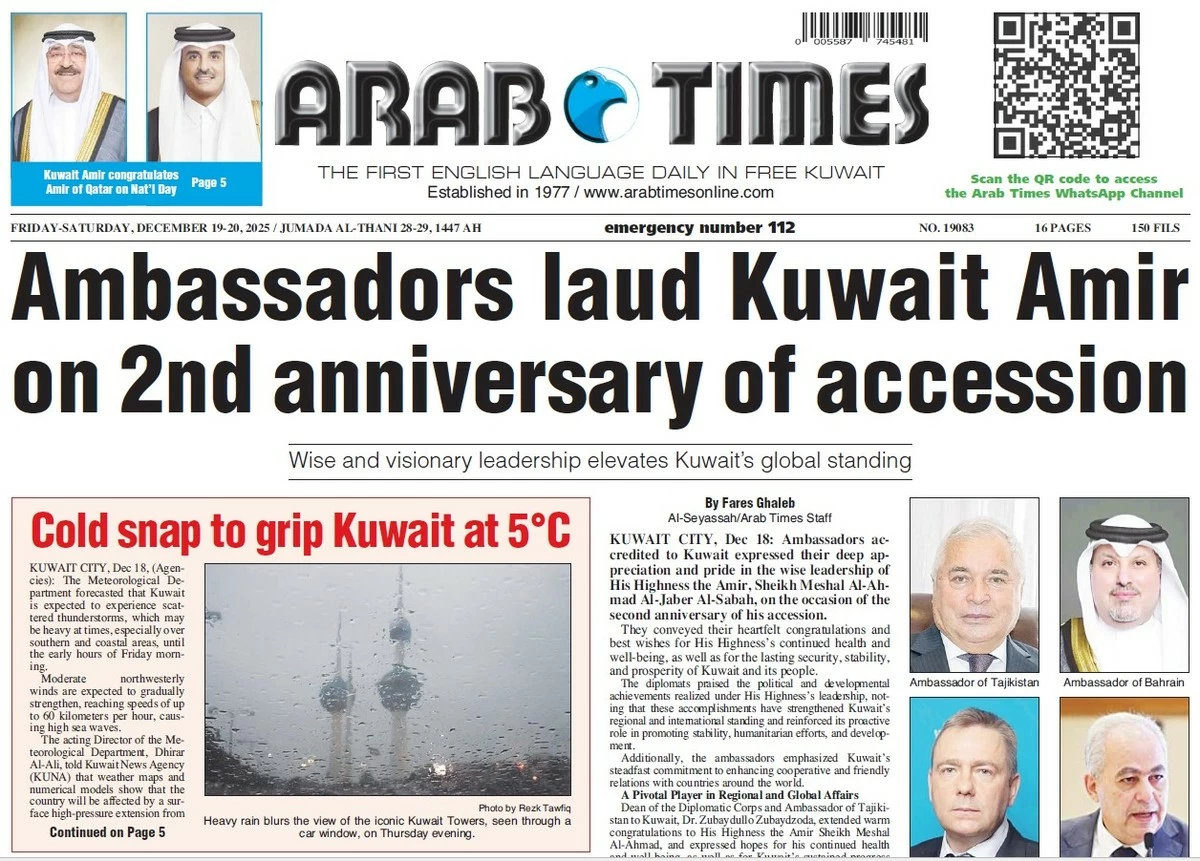10/01/2024
10/01/2024

THE salaries of the public sector have reached KD 14 billion in total, and are subject to constant increase. Investment spending is KD 2 billion annually. We import everything from needles and tissues to cars and heavy equipment. Our food security depends on other countries for all food commodities from parsley to canned goods. All this definitely means that our economy is dependent, and we lack immunity to resist the changes that occur globally.
Since 1956, the war on oil has been continuing. Some Gulf countries realized this fact after the 1973 war and worked to build a strategy of self-reliance, even within the limits that ensure its sufficiency. This conviction was consolidated with the Iraq-Iran war, which represented a model for the Gulf to limit its dependence on the outside.
Also, the Iraqi invasion of Kuwait was a harsh lesson for the region. That is why it accelerated the process of relying on local capabilities.
As for Kuwait, which had to change the function of the state, it depends on oil for its strategic income to this day.
The decision-making circles did not think about food security and industrial infrastructure. The solutions were limited to improvised decisions based on the ideas of merchants and importers who worked to develop the spirit of dependence and fight productive projects, because they consider them as competition for them, not intended for economic integration.
Since the 1980s, the Gulf states have sought to abandon dependence on oil and began establishing an industrial and agricultural structure, taking advantage of the vast deserts and financial abundance.
This is why the Kingdom of Saudi Arabia has been able to compete. Many of the goods exported to the Arab world are Saudi-made.
Likewise, when wheat prices rose and its supply chains were disrupted, the Emirate of Sharjah worked to cultivate large areas of wheats. It used to import 330,000 kilograms of wheat annually but last season it produced a total of 1,600 tons.
With technological development, crops do not require large areas. There is the so-called vertical agriculture. These days, even factories no longer need armies of workers.
However, all this requires vision, non-hesitation in making a decision, and not listening to traders alone, because they perpetuate the dependent economy that all studies and research institutes in the world have warned against.
Unfortunately, Kuwait is still relying on this type of economy, as if the ideas did not exist, or the officials put on dark glasses that obscure their vision of the reality of what the country is suffering from.
That is why when we wrote about Kuwait being an investment repellent, we relied on facts and annual reports since 2009. We warned of an economy that drains about 65 percent of wealth, and also increases the annual fiscal deficit.
Here it must be pointed out that no matter how high the oil prices are, remedies based on distributing grants and increasing salaries without a productive return are futile. This is due to the fact that parliamentarians are trying to enhance their electoral assets by increasing rentierism and ensuring the false well-being of the citizens.
This is like someone who drinks from the sea. The more he drinks the seawater, the thirstier he becomes. This does not build a real economy.
For all of this, the vision must be changed, and the state must have a goal and a project for the future. There is no doubt that Dr. Mohammad Sabah Al-Salem, who is an economic expert, realizes that the strength of a state is based on material and moral resources, as well as self-reliance. Great powers are not based on their roles, areas or population, but on the ability to confront crises without resorting to resources imported from abroad.
By Ahmed Al-Jarallah
Editor-in-Chief, the Arab Times


